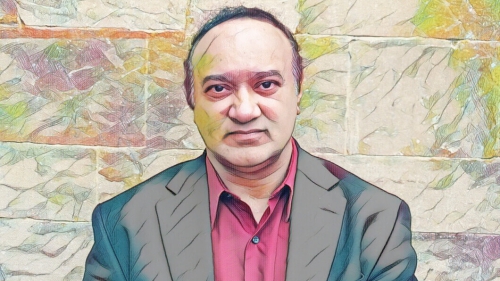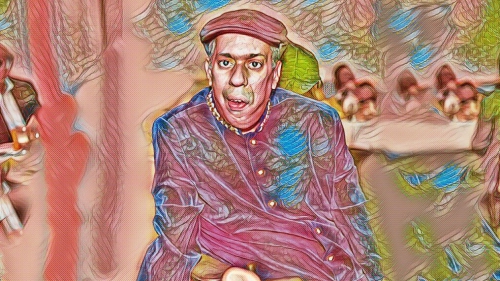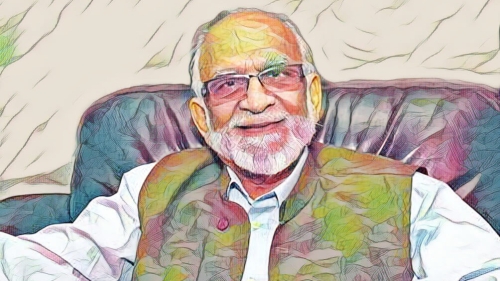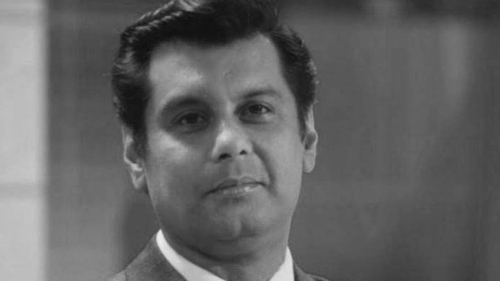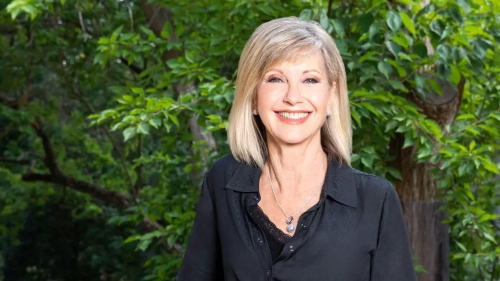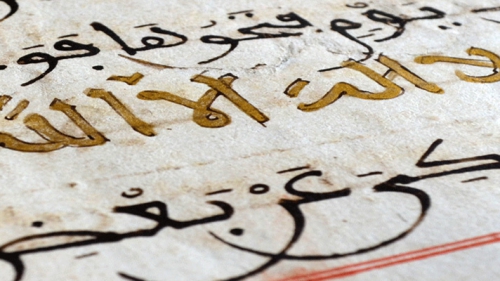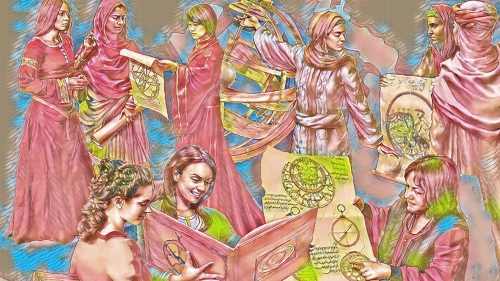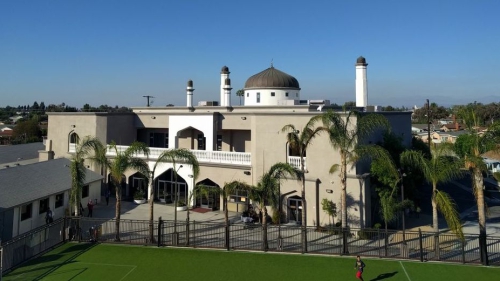Influential Muslim scholar Yusuf al-Qaradawi dies

Sheikh Yusuf al-Qaradawi, one of the most influential contemporary Muslim scholars and Faqih who blended tradition with modernity, passed away at 96 on Monday, 26 September 2022, in Qatar.
Originally from Egypt and spending most of his life in exile, he was the chairman of the International Union of Muslim Scholars and actively dispensed theological rulings (Fatwas) and advice on daily living and global politics until his last breath.
He was the author of more than 120 books and over 60 publications, including the most authoritative work, "The Lawful and The Prohibited in Islam," which has been translated into several major languages.
Although he was a scholar of Sunni theology, he sought accommodation with Shia theology, calling for greater understanding between the two schools of thought.
He was one of those few who was open to retracting his juristic position after realizing that he had made a mistake in his judgment. Yet, he never showed arrogance for his knowledge and scholarship.
Although inspired by the Ikhwan al Muslimoon, Muslim Brotherhood, he always rose above his organizational loyalties when serving the Islamic interests of Muslims and the cause of human justice.
His critics accused him of being an extremist and terrorist, but he always responded by calmly explaining his views and never expressed anger towards those who opposed him. His enemies threatened his life; he never sought intervention except from his Creator to seek protection.
This author had the opportunity to spend two days with Dr. Yusuf al-Qaradawi when he visited India in the 1970s. The Jamat-e-Islami assigned the author to take him around.
During the two days, we visited Delhi University and Jawahar Lal University. He did not mind riding the back seat of a Vespa scooter and eating lunch at the JNU street food store. He was straightforward and had a great sense of humor.
He led the mass funeral prayer in 1979 at Lahore City Stadium of his compatriot, Syed Abul Ala Maudoodi, the founder of a sister organization of the Muslim Brotherhood in South Asia, Jamaat-e-Islami.
Born on September 9, 1926, in a small village Saft Turab rural in the Nile Delta, now in Gharbia Governorate, Egypt, Yusuf al-Qaradawi lost his father when he was under two. His uncle raised him. The world population was 1.86 billion at that time. When he left the world, a great majority of the two billion Muslims were influenced by his rulings.
France and UK denied him entry into their countries during the latter days of his life, but they could not stop his writing from reaching millions.
After his initial studies in Tanta, he studied Islamic Theology at the Al-Azhar University in Cairo, from which he graduated in 1953.
He earned a diploma in Arabic Language and Literature in 1958 at the Advanced Arabic Studies Institute. After that, he enrolled in the graduate program in the Department of Quran and Sunnah Sciences of the Faculty of Religion’s Fundamentals (Usul al-Din) and graduated with a master’s degree in Quranic Studies in 1960.
In 1962, Al-Azhar University sent him to Qatar to head the Qatari Secondary Institute of Religious Studies. He completed his Ph.D. thesis titled Zakah and its effect on solving social problems in 1973 with First Merit and was awarded his Ph.D. from Al-Azhar.
He was in prison under King Farouq in 1949, then three more times during the term of President Gamal Abdul Nasser. Finally, he left Egypt for Qatar in 1961 and did not return until the overthrow of the military regime by the 2011 Egyptian Revolution.
In 1977, he laid the foundation for the Faculty of Shari’ah and Islamic Studies at the University of Qatar, became the faculty’s dean, and founded the Centre of Seerah and Sunna Research.
In 1997, Al-Qaradawi helped found the European Council for Fatwa and Research, a council of important and influential Muslim scholars dedicated to researching and writing fatwas in support of Western Muslim minority communities based in Ireland, and he served as its head. He also served as the International Union for Muslim Scholars (IUMS) chairman.
In the wake of the 2011 Revolution, he returned to Egypt for the first time since leaving in 1961.
He opposed religious extremism of all kinds. However, in his dissertation on Islamic awakening between Rejection and Extremism, he blames older Muslim generations for extremism among Muslims.
He advocated Sufism and practiced it also. He sought reconciliation between Shias and Sunnis and Muslims and non-Muslims.
Qaradawi wrote that Islam does not prohibit Muslims from being kind and generous to people of other religions. He advised Muslims to avoid approaches that may arouse hostility towards others.
He opposed punishment for apostasy and asked Muslims to guard the values of their religion. He was an ardent supporter of democracy and advocated the establishment of city states with a religious background. He opposed theocracy.
He described Islam as the religion of tolerance that holds the human soul in high esteem and considers the attack on innocent human beings a grave sin. He opposed domestic violence, niqab, female genital mutilation, honor killing, and stoning by death.
Al-Qaradawi supported and advocated Mawlid and suggested that using the birth date of Muhammad in remembrance of his life story is not bid’a. It is encouraged in Islam to do a good action by our good examples and that they may successively follow them till the end of time.
Al-Qaradawi was born in Egypt but lived in Qatar. He had three sons and four daughters, three of whom hold doctorates from British Universities.
His daughter, Ilham Yusuf Al-Qaradawi, is an internationally recognized nuclear scientist. His son, Abdulrahman Yusuf al-Qaradawi, is a poet and a political activist in Egypt.
Books:
Al-Qaradawi authored more than 120 books, and his academic style
Some consider his book Fiqh al-Zakat as the most comprehensive work in the area of Zakat. Abul Ala Maududi commented on it as “the book of this century in Islamic jurisprudence (fiqh).”
His book Fiqh al-Jihad is the most popular one. The Guardian writes: Qaradawi encourages a “middle way” conception of jihad: “solidarity” with the Palestinians and others on the front line, rather than violence, is an obligatory form of jihad.
Major works:
Yusuf al-Qaradawi wrote many books, some of which were in English:
Islam: Modern Fatwas on Issues of Women and the Family (Fatawa Mu’asira fi Shu’un al-Mar’a wa al-Usrah) (Dar al-Shihab, Algeria, 1987)
Auspices of the Ultimate Victory of Islam, Doha (1996)
The desired Muslim generation. Riyadh: International Islamic Publishing House. 1999.
Diversion and Arts In Islam (in progress)
Non-Muslims in the Islamic society. Indianapolis, Ind., USA: American Trust Publications. 1985.
Priorities of the Islamic movement in the coming phase. Cairo: al-Dār. 1992.
Fiqh az-zakat: a comparative study: the rules, regulations, and philosophy of Zakat in the light of the Qurʼan and Sunna. London: Dar Al Taqwa. 1999.
Contemporary fatawa: current issues in Islamic fiqh. Newark, NJ: Islamic Book Service. 1999.
Time in the life of a Muslim. London: Ta-Ha. 2000.
Sincerity: The Essential Quality. MAS Publications. 2006.
Approaching the Sunnah: Comprehension & Controversy. London Washington D.C.:
International Institute of Islamic Thought. 2007.
Islamic awakening between rejection and extremism. Kuala Lumpur Herndon, Va: Islamic Book
Trust The International Institute of Islamic Thought. 2010.
Islam: an introduction. Kuala Lumpur, Malaysia: Islamic Book Trust. 2010.
Economic security in Islam. Kuala Lumpur: Dar Al Wahi Publication. 2010.
Amongst his dozens of works in Arabic are:
Ghayr al-Muslimīn fī al-mujtanaʻ al-Islāmi. Cairo: Maktabat Wahbah. 1977.
Ayna al-khalal. Cairo: Dār al-Ṣaḥwah. 1985.
Awāmil al-saʻah wa-al-murūnah fī al-sharīʻah al-Islāmīyah. Cairo: Dār al-Ṣaḥwah. 1985.
al-ʻIbādah fī al-Islām. Cairo: Maktabat Wahbah. 1985.
al-Nās wa-al-ḥaqq. Cairo: Maktabat Wahbah. 1986.
Bayʻ al-murābaḥah lil-āmir bi-al-shirāʼ ka-mā tujrīhi al-maṣārif al-Islāmīyah : dirāsah fī ḍawʼ al-nuṣūṣ wa-al-qawāʻid al-sharʻīyah. Cairo: Maktabat Wahbah. 1987.
al-Īmān wa-al-ḥayāh. Cairo: Maktabat Wahbah. 1990.
Malāmiḥ al-mujtamaʻ al-Muslim alladhī nanshuduh. Cairo: Maktabat Wahbah. 1993.
Dawr al-qiyam wa-al-akhlāq fī al-iqtiṣād al-Islāmi. Cairo: Maktabat Wahbah. 1995.
Fī fiqh al-awlawīyāt : dirāsah jadīdah fī ḍawʼ al-Qurʼān wa-al-sunnah. Cairo: Maktabat Wahbah. 1995.
al-Islām wa-al-fann. Cairo: Maktabat Wahba. 1996.
al-Aqallīyāt ad-dīnīya wa-l-ḥall al-islāmi. Cairo: Maktabat Wahba. 1996.
al-Mubashshirāt bi-intiṣār al-Islām: Maktabat Wahbah. 1996.
Min fiqh al-dawlah fī al-Islām : makānatuhā– maʻālimuhā– ṭabīʻatuhā, mawqifuhā min al-dīmuqrāṭīyah wa-al-taʻaddudīyah wa-al-marʼah wa-ghayr al-Muslimīn: Dār al-Shurūq. 1997.
al-Ṣaḥwah al-Islāmīyah wa-humūm al-waṭan al-ʻArabi. Cairo: Dār al-Shurūq. 1998.
Thaqāfatunā bayna al-infitāḥ wa-al-inghilāq. Cairo: Dār al-Shurūq. 2000.
al-Īmān bi-al-qadar. Beirut: Muʼassasah al-Risālah Nāshirūn. 2001.
Fī fiqh al-aqallīyāt al-Muslimah : ḥayāt al-Muslimīn wasaṭ al-mujtamaʻāt al-ukhra. Cairo: Dār al-Shurūq. 2001.
Riʻāyat al-bīʼah fī sharīʻat al-Islām. Cairo: Dār al-Shurūq. 2001. I
al-Sunnah wa-al-bidʻah. Cairo: Maktabat Wahbah. 20
Fī wadāʻ al-aʻlām. Beirut: Dār al-Fikr. 2003.
al-Islām alladhī nadʻū ilayh. Cairo: Maktabat Wahbah. 2004.
al-Ṣaḥwah al-Islāmīyah : bayna al-āmāl wa-al-maḥādhīr. Cairo: Maktabat Wahbah. 2004.
Miʼat suʼāl ʻan al-ḥajj wa-al-ʻumrah wa-al-uḍḥiyah wa-al-ʻīdayn. Cairo: Maktabat Wahbah. 2004.
al-Islām wa-‘l-ʻunf: naẓarāt taʼṣīlīya. Cairo: Dār al-Shurūq. 2005.
Naḥnu wa-al-Gharb: asʼilah shāʼikah wa-ajwibah ḥāsimah. Cairo: Dār al-Tawzīʻ wa-al-Nashr al-Islāmīyah. 2006.
al-Islām kamā nuʼminu bihī ḍawābiṭ wa-malāmih. Cairo: Dār Nahḍat Miṣr li-ṭ-Ṭibāʻa wa’n-Nashr wa-‘t-Tauzi. 2006
Dirāsah fī fiqh maqāṣid al-sharīʻah: bayna al-maqāṣid al-kullīyah wa-al-nuṣūṣ al-juzʼīyah. Cairo: Dār al-Shurūq. 2006.
Kayfa nataʻāmalu maʻa al-Qurʼān al-ʻAẓīm. Cairo: Dār al-Shurūq. 2006.
al-Dīn wa-al-siyāsah : taʼṣīl wa-radd shubuhāt. Cairo: Dār al-Shurūq. 2007.
Fiqh al-Jihād: Dirāsah Muqāranah li-Aḥkāmih wa Falsafatih fī Ḍaw’ al-Qur’ān wa al-Sunnah. Cairo: Maktabat Wahbah. 2009.
Fiqh al-wasaṭīyah al-Islāmīyah wa-al-tajdīd: maʻālim wa-manārāt. Cairo: Dār al-Shurūq. 2010.
Ḥayāt al-marʼah al-Muslimah: fī iṭār al-ḥudūd al-sharʻīyah. Cairo: Maktabat Wahbah. 2011.
al-Sunnah wa-muwājahat ḥamalāt al-tashkīk. Cairo: Maktabat Wahbah. 2011. I
He has also published some excerpts of his poetry in the book Nafahat was Lafahat. Al-
Qaradawi has also been the subject of the book The Global Mufti: The Phenomenon of Yusuf al-Qaradawi, published by Columbia University Press.







